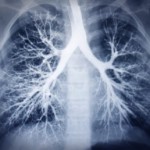Weekly health news roundup – Jan 10th-16th, urinary tract infections, Ulcerative colitis, Crohn’s disease, Lupus and more
This week in health news a link between Crohn’s diseases and ulcerative colitis relapses was made with sleep disturbances, urinary tract infections were found to be influenced by a person’s diet, lupus can affect the lungs, what switches on the thyroid was discovered and a potential new treatment for Parkinson’s disease was uncovered in cholesterol-lowering drugs.
In case you missed any of these health news topics, here they are all together for your convenience.
Crohn’s disease and ulcerative colitis relapse may be triggered by sleep disturbances
 Many people understand the importance of a getting a good night’s sleep, but recent research indicates that two inflammatory bowel diseases, Crohn’s disease and ulcerative colitis could relapse due to sleep disturbances. Sleep disturbances are associated with absenteeism at work, as well as an increased need for healthcare services. Research shows that it is also closely linked to gastrointestinal (GI) symptoms. Continue reading…
Many people understand the importance of a getting a good night’s sleep, but recent research indicates that two inflammatory bowel diseases, Crohn’s disease and ulcerative colitis could relapse due to sleep disturbances. Sleep disturbances are associated with absenteeism at work, as well as an increased need for healthcare services. Research shows that it is also closely linked to gastrointestinal (GI) symptoms. Continue reading…
Urinary tract infections (UTI) influenced by person’s diet and acidity of urine
 One in five women will have at least one UTI, also referred to as a bladder infection, in her lifetime. Close to 20 percent of women who have a UTI will have another, and 30 percent of those will have yet another. Beyond this point, statistics show that there is a group of women who will have UTI recurrences throughout their lifetime. Although the numbers are not as high, men are not excluded – about 12 percent of the male population in the United States gets a UTI at some point in their lives.
One in five women will have at least one UTI, also referred to as a bladder infection, in her lifetime. Close to 20 percent of women who have a UTI will have another, and 30 percent of those will have yet another. Beyond this point, statistics show that there is a group of women who will have UTI recurrences throughout their lifetime. Although the numbers are not as high, men are not excluded – about 12 percent of the male population in the United States gets a UTI at some point in their lives.
A recent study indicates diet may be the reason some people are more prone to bladder infections.
Researchers at Washington University School of Medicine in St. Louis conducted a study based on the common belief that early on in an infection, cells produce a protein called siderocalin. This protein blocks bacteria from growing, including E. coli. E. coli often causes UTI. The researchers wanted to see how the protein worked at restricting the growth of E. coli in several different samples of urine in men and women. They ended up uncovering two common factors that affected bacteria growth. One factor was more alkaline, or higher pH, and the other high levels of certain metabolites, which are formed by microbes in the stomach. Metabolites come from the diet. Continue reading…
Lupus affects lungs, leads to pleuritis, pneumonitis and pulmonary hypertension
 Lupus is an autoimmune disease that often impacts the lungs, and research shows pulmonary complications with this disease can lead to pleuritis, pneumonitis and pulmonary hypertension.
Lupus is an autoimmune disease that often impacts the lungs, and research shows pulmonary complications with this disease can lead to pleuritis, pneumonitis and pulmonary hypertension.
When a person has a lung infection it usually affects their airway and lung tissue, but with lupus it seems that it can impact all compartments of the lungs and include pleuritis, which is inflammation of the linings around the lung, as well as pulmonary hypertension (high blood pressure that occurs in the arteries in the lungs). Those with lupus and lung problems can also get pneumonitis, inflammation of the walls of the alveoli in the lungs, normally caused by a virus.
Lupus and lung involvement are not automatic. In other words, just because you have lupus does not mean that you will have lung problems. Studies suggest that about 50 percent of those with lupus with eventually suffer from some sort of lung disease. Medical researchers think it is important that patients fully understand the complications that could arise so they can be addressed at the first signs – before symptoms get too out of control. Continue reading…
Scientists searching for potential treatment for Parkinson’s in cholesterol-lowering drug
 In a current clinical study, scientists are exploring the possibility of Simvastatin (a cholesterol lowering drug) being an effective method of treatment for people with Parkinson’s disease. They hope this cholesterol-lowering drug could join the growing list of effective treatments available for treating Parkinson’s disease.
In a current clinical study, scientists are exploring the possibility of Simvastatin (a cholesterol lowering drug) being an effective method of treatment for people with Parkinson’s disease. They hope this cholesterol-lowering drug could join the growing list of effective treatments available for treating Parkinson’s disease.
The study, which will take place in 21 centres in the UK including Plymouth Hospitals NHS Trust, is being organised by the Plymouth University Peninsula Schools of Medicine and Dentistry. It will involve 198 Parkinson’s patients in a double-blinded placebo controlled study. For the trial, the researchers are seeking patients with Parkinson’s disease who are not currently taking statins (cholesterol-lowering drug). Additionally, people who have been living with Parkinson’s and who are not already taking a statin. Continue reading…
Scientists discover switch that turns on the thyroid
 A recent survey shows that many people with thyroid disease are unaware they have a thyroid problem. This is quite disconcerting as a hyperactive or a hypoactive (underactive) thyroid can cause a many health problems, including mood changes, infertility, weight gain or loss, and even skin conditions. In fact, in infants and children, an underactive thyroid can be fatal, which is why neonatal testing for thyroid deficiency is a must.
A recent survey shows that many people with thyroid disease are unaware they have a thyroid problem. This is quite disconcerting as a hyperactive or a hypoactive (underactive) thyroid can cause a many health problems, including mood changes, infertility, weight gain or loss, and even skin conditions. In fact, in infants and children, an underactive thyroid can be fatal, which is why neonatal testing for thyroid deficiency is a must.
Thyroid disease affects more than 10% of the U.S. population, but in spite of the prevalence of thyroid disease and its harsh side effects, scientists have not been able to come up with an answer for a very basic question, namely, what turns on the thyroid? Till now that is. Continue reading…
-
Brinks Unified Theory of Nutrition
When people hear the term Unified Theory, some times called the Gr
-
Which Hunger Suppressant Pills Provide Optimal Results?
Hunger suppressant pills, is now widely available in groceries, mal
-
The Journey To Weight Loss Success
Losing weight is not just an overnight decision, and it is more certai
-
Suggestions To Assist You Lose Weight
Many individuals stare at themselves wit
-
Become Thin Through Choosing A Reduced Carb Diet Program
That low carb diets are the way to go, is now the general consens
-
Healthy Diet Is A Key To Healthy Weight Loss
Since ages, there exists a thinking in the minds of people that lo
- DON'T MISS
- Natural Weight Loss, When you do not have to Go Over
- Health Care - Weight Loss in Teenagers
- insanity workout tracking kit and p90x reviews
- Are Organics the new Prada?
- How to Have a Wonderful Holiday Season Without Gaining Weight
- Losing Weight -- A Body In Motion
- Achieving A More Youthful Figure With A Tummy Tuck And Liposuction Of The Iliac Areas
- How to Eat More and Lose Weight at the Same Time
- How to Shed Pounds Rapidly and Naturally
- Gods Diet From The Bible




